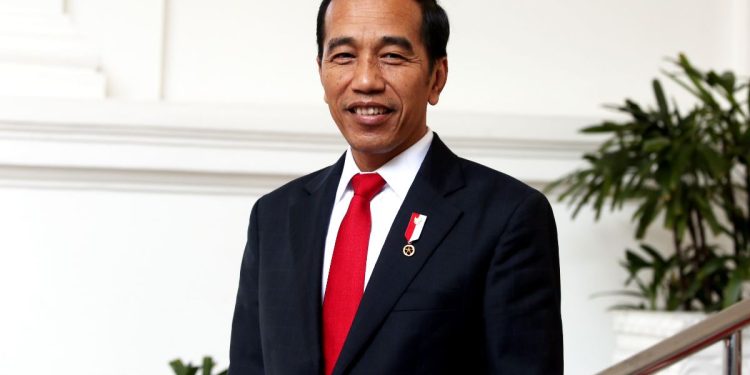
The vitality of international partnerships is paramount in fostering economic resilience and mutual growth. In a world marked by rapid change, sustaining collaborative efforts can yield significant benefits for all involved parties. This philosophy underscores the importance of maintaining positive relations that deepen trade and investment channels, ultimately leading to shared prosperity.
At a critical juncture, leaders are emphasizing the need for an unwavering commitment to existing agreements that promote economic development. Such initiatives not only enhance market accessibility but also encourage innovation and the exchange of best practices across borders. A robust framework of cooperation can galvanize industries, generate employment opportunities, and uplift communities.
As discussions unfold, the potential impacts of sustained engagement highlight the relevance of proactive measures that align with both regional and global economic objectives. The aim is to forge a path toward a sustainable future, characterized by strengthened ties and an unwavering commitment to collective progress.
Importance of GSP for Indonesia’s Economy
The Generalized System of Preferences plays a crucial role in shaping the economic landscape of many developing nations. By enabling preferential access for certain goods, it fosters growth and development in industries that are essential for national prosperity. The enhancement of trade relationships through such initiatives can significantly impact a country’s ability to diversify its economy and improve the standard of living for its citizens.
In the case of this Southeast Asian nation, the benefits of such arrangements can lead to increased exports, creation of jobs, and the enhancement of local industries. This trade facilitation mechanism allows businesses to thrive in a competitive global market, ultimately strengthening the economy as a whole. Furthermore, it encourages foreign investments, which can contribute to technological advancements and better practices in production.
Moreover, access to preferential trade terms can aid in reducing poverty levels and promoting social welfare. By enabling local producers to reach broader markets, it provides them with opportunities to grow and innovate, thereby stimulating economic dynamism. The ripple effects of such policies are felt across various sectors, leading to comprehensive national development.
Overall, the implications of these trade preferences extend beyond mere economic benefits; they forge stronger ties and collaborations between nations, paving the way for mutual growth and understanding in a complex global environment.
Jokowi’s Diplomatic Efforts with the US
In recent years, the leader of the Southeast Asian nation has been actively engaging with the United States to fortify bilateral relations and foster mutual cooperation. These diplomatic initiatives are aimed at enhancing economic ties and addressing common challenges that both countries face in the global arena.
Through a series of strategic discussions, significant emphasis has been placed on trade benefits and economic partnerships. The focus is not only on boosting trade volume but also on creating a framework that encourages sustainable development and investment opportunities.
Furthermore, the leader has highlighted the importance of collaboration in various sectors, including technology, security, and environmental sustainability. By advocating for a stronger alliance, the intention is to pave the way for future endeavors that contribute to regional stability and prosperity.
Ultimately, these diplomatic efforts reflect a commitment to building a robust relationship that can withstand global challenges while delivering tangible outcomes for both nations.
Impact of GSP on Trade Relations
The framework of trade preferences significantly shapes the dynamics between nations, fostering stronger economic ties and enhancing cooperation. By providing unique advantages, such arrangements encourage the exchange of goods and help build mutual prosperity. This mutually beneficial approach can lead to increased investments and can stimulate growth in various sectors of the involved economies.
Economic Growth and Job Creation
One of the primary effects of trade preference programs is the stimulation of economic expansion. These preferences allow countries to export their products at reduced tariffs, making them more competitive in global markets. As a result, there is often a notable rise in export volumes, which can lead to job creation within domestic industries.
Trade Balance and Market Access
Access to markets can significantly alter a nation’s trade balance, which is a crucial measure of economic health. With preferential access, countries often notice improvements in their trade deficits or surpluses. This enhanced access strengthens bilateral relationships and fosters long-term partnerships.
|
Aspect |
Positive Impact |
Potential Challenge |
|---|---|---|
|
Economic Growth |
Increased exports and job opportunities |
Dependence on preferential treatment |
|
Trade Balance |
Improved trade surplus or reduced deficit |
Vulnerability to market fluctuations |
|
Investment |
Attraction of foreign direct investment |
Competition with local businesses |
Potential Benefits for Indonesian Exporters
The retention of preferential trade arrangements can yield significant advantages for local exporters. These benefits span various aspects of international commerce, enhancing competitiveness and fostering growth across multiple sectors.
-
Increased Market Access: With favorable trade conditions, exporters can penetrate foreign markets more easily, reaching a wider audience.
-
Enhanced Competitiveness: Lower tariffs lead to reduced costs for local businesses, allowing them to compete effectively against international counterparts.
-
Boosted Economic Growth: Expanding export activities contributes to overall economic development, creating jobs and stimulating local industries.
-
Diversification Opportunities: Access to new markets encourages businesses to explore various products, mitigating risks associated with reliance on a single market.
-
Strengthened International Relationships: Maintaining positive trade relations can lead to collaboration in other sectors, fostering diplomatic and economic ties.
Such arrangements not only uplift individual businesses but also promote the country’s position in the global marketplace, paving the way for sustained economic growth and innovation.
Challenges Facing GSP Extension
The potential renewal of trade preferences is encountering a series of obstacles that must be navigated carefully. Various factors contribute to the complex dynamics at play, affecting the likelihood of advancement in trade relations between nations. Economic considerations, political shifts, and evolving international standards all play a pivotal role in shaping the future of such agreements.
One significant challenge lies in the fluctuating economic landscape. As markets adapt to new realities, the needs of industries may change, leading to disagreements over priorities. Additionally, competitiveness amongst different trading partners has intensified, prompting concerns over fairness and reciprocity in trade practices.
Political factors also present hurdles. Domestic policies, shifts in administration strategies, and the influence of interest groups can directly impact the decisions on trade arrangements. These elements create a multifaceted environment where negotiations must address both international relations and internal pressures.
Another pressing issue involves compliance with regulatory demands. As international standards evolve, nations must ensure that they meet new criteria, which can prove challenging. This includes ensuring environmental protection and labor rights, further complicating discussions surrounding trade preferences.
In summary, the journey toward extending trade preferences is fraught with complexities. Addressing economic uncertainties, political influences, and regulatory compliance will be essential in determining whether these beneficial arrangements can move forward.
Future of Indonesia-US Economic Cooperation
The trajectory of economic relations between Indonesia and the United States holds significant potential for mutual growth and development. As both nations navigate the complexities of a dynamic global market, fostering strong trade partnerships and investment opportunities becomes increasingly essential. Collaborative efforts can pave the way for innovation, technological advancement, and enhanced market access, benefiting diverse sectors within both economies.
Strengthening ties may involve exploring new avenues for collaboration, particularly in areas such as sustainable development, digital technology, and green energy. By leveraging complementary strengths, both parties can create a robust framework that promotes shared prosperity and addresses contemporary challenges, including climate change and economic inequalities.
Looking ahead, it is crucial to maintain open lines of communication to facilitate dialogue and address any emerging trade issues. Initiatives aimed at workforce development, knowledge exchange, and regulatory harmonization will also play a key role in solidifying this partnership. In this evolving landscape, a commitment to mutual gains will serve as the cornerstone of enduring economic collaboration.
Q&A: Jokowi asks us congress for gsp continuation
What is GSP and why is it important for Indonesia?
The Generalized System of Preferences (GSP) is a trade program that provides certain countries with preferential treatment in the form of reduced tariffs on specific goods exported to the United States. For Indonesia, GSP is crucial as it enhances the country’s export competitiveness, allows for better market access for Indonesian products, and supports economic growth. The program enables Indonesia to diversify its economy and strengthen its trade relationships, particularly in sectors like textiles, agriculture, and handicrafts.
What specific actions did President Jokowi take to encourage US Congress to continue GSP support?
President Jokowi actively engaged with key members of the US Congress, emphasizing the mutual benefits of continuing the GSP support for Indonesia. He highlighted Indonesia’s commitment to adhering to international trade standards and its positive track record in various sectors. Furthermore, Jokowi articulated how the continuation of GSP would not only bolster Indonesia’s economy but also strengthen bilateral relations, enhance strategic partnerships, and foster economic stability in the region.
How might the potential suspension of GSP benefits impact Indonesia’s economy?
The potential suspension of GSP benefits could have significant negative repercussions for Indonesia’s economy. With GSP, Indonesian products enjoy lower tariffs, which makes them more competitive in the US market. If GSP is suspended, it could lead to increased costs for exporters, reduce the profitability of exports, and ultimately lower sales in the US. This could result in job losses, hinder economic growth, and negatively affect the livelihoods of many workers in export-oriented sectors. Additionally, it might discourage foreign investment and economic diversification efforts in Indonesia.
What other trade relationships is Indonesia focusing on apart from the GSP with the US?
Besides the GSP program with the US, Indonesia is actively pursuing trade relationships with various countries and regions. The country is part of several multilateral trade agreements, such as the Regional Comprehensive Economic Partnership (RCEP) and is working to enhance ties with the European Union, Japan, and ASEAN countries. Indonesia is also exploring potential free trade agreements to boost exports, attract foreign investment, and improve economic resilience amid global trade fluctuations. By diversifying its trade partnerships, Indonesia aims to mitigate risks associated with dependency on a single market.
How has President Jokowi’s meeting with US Congress members at the Merdeka Palace in Jakarta impacted the GSP facility extension?
During the meeting at the Merdeka Palace in Jakarta, President Jokowi conveyed the importance of extending the Generalized System of Preferences (GSP) facility. The discussion highlighted the benefits for Indonesia’s exports to the US and aimed to lobby the US Congress for the extension. According to Foreign Minister Retno Marsudi, President Jokowi expressed hope that the US Congress would expedite the ratification of the GSP extension, which would support Indonesia’s access to the US market and strengthen the strategic partnership between the two countries.
What role did Foreign Minister Retno Marsudi play in the discussions about the GSP facility with US officials?
Foreign Minister Retno Marsudi played a crucial role in coordinating the discussions about the GSP facility. She provided a press statement detailing the importance of the GSP extension for Indonesia’s economic interests. Marsudi emphasized that the extension would benefit developing countries and expressed the hope that the US would support the extension of the GSP program. Her efforts were focused on aligning the interests of both Indonesia and the US in the comprehensive strategic partnership.
What were President Jokowi’s main objectives in his talks with US President Joe Biden at the White House?
President Jokowi’s main objectives during his talks with US President Joe Biden at the White House were to strengthen the strategic partnership between the two countries and discuss the extension of the GSP facility. Jokowi conveyed Indonesia’s appreciation for US support and emphasized the importance of continued collaboration. He also expressed hope that the US would support the extension of the GSP program, which expired at the end of 2022, and enhance access to the US market for Indonesian exports.
How did the expiration of the GSP program at the end of 2022 affect Indonesia’s exports to the US?
The expiration of the GSP program at the end of 2022 had a significant impact on Indonesia’s exports to the US. The GSP facility, which provided duty-free access to thousands of products, was crucial for Indonesian exporters. According to data, GSP exports in 2019 came to a substantial amount, and the loss of this facility meant higher duties on these products. President Jokowi and Foreign Minister Retno Marsudi have been actively engaging with US officials to lobby for the extension of the GSP program to mitigate these impacts.
What is the significance of the comprehensive strategic partnership between Indonesia and the US?
The comprehensive strategic partnership between Indonesia and the US is significant as it encompasses a wide range of collaborative efforts, including trade, investment, and regional security. The partnership aims to strengthen economic ties and address mutual interests in the Indo-Pacific region. The extension of the GSP facility is a key component of this partnership, as it supports Indonesia’s access to the US market and reinforces the commitment to a wider and more inclusive economic framework. The partnership also underscores the two countries’ shared goals in defending justice and humanity on the global stage.





